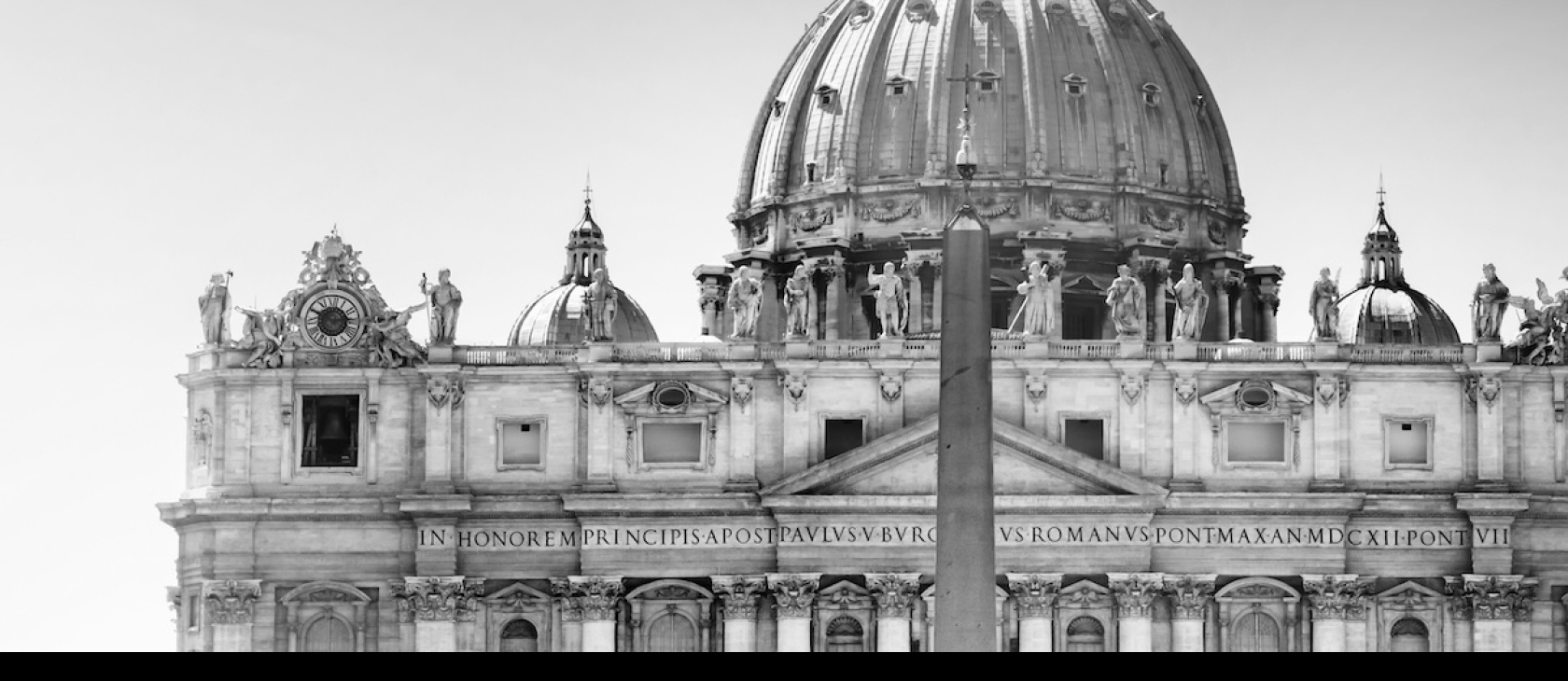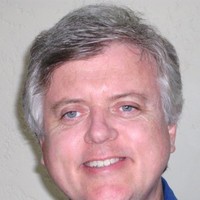In her just-released book, In the Courts of Three Popes: An American Lawyer and Diplomat in the Last Absolute Monarchy of the West, accomplished international attorney, diplomat, and Harvard Law School professor emerita Mary Ann Glendon offers readers a unique perspective on the papacies of Popes John Paul II, Benedict XVI, and Francis.
Mary Ann Glendon, Harvard Law professor emerita and one-time U.S. Ambassador to the Holy See, offers a glimpse into the Vatican and what the Church gets right—and wrong—about finance, women, and its own employees.
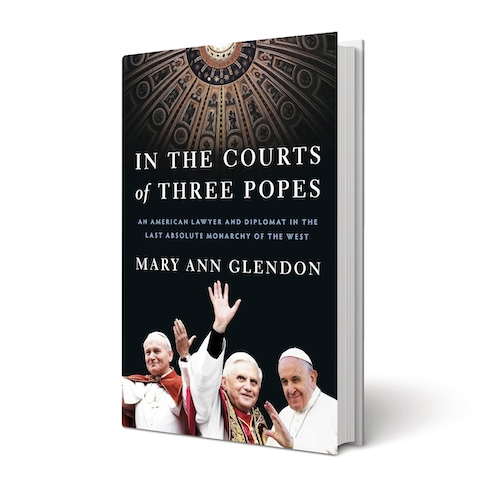
By Mary Ann Glendon
(Image, 2024)
In 1995, John Paul II chose her to be the Vatican representative to the UN’s World Conference on Women held in, of all places, Beijing. This was in the midst of China’s one-child (forced-abortion) policy, which was supposed to reduce excessive population but also caused an acute gender imbalance. (When coerced into having only one child, many couples chose to abort a female fetus in the hope of eventually conceiving a son instead.) At the same time, Glendon was called on to defend the Church’s absolutist view against any form of artificial contraception. To be sure, no condoms in an era of HIV/AIDS was a hard sell.
In November of 2007, President George W. Bush nominated her for the role of U.S. Ambassador to the Holy See. She was confirmed the next month and presented her Letters of Credence to Pope Benedict XVI in February of 2008. She held the position for nearly a year before resigning in January of 2009.
Four years later, Pope Francis appointed her to a pontifical commission of inquiry investigating the murky goings-on at the Institute for Works of Religion (a.k.a. the Vatican Bank).
JWK: Tell me about your personal road to Rome and the Vatican. How does your story begin?
Mary Ann Glendon: My role in the Vatican—my roles, I guess I should say—started out in 1994, when I was appointed by John Paul II to be a member of the newly formed Pontifical Academy of Social Sciences. The year after that I was asked, again by Pope John Paul II, to head the Vatican delegation to the Beijing Women’s Conference. In the 24 years after that, I’ve been all over the Vatican, serving on various councils. You know, I have a full-time job and a family, so this is not an “insider’s book” but that of an outsider who had a vantage point from a number of positions in the Vatican. Most recently, I was involved in the reform of the Vatican Bank. Pope Francis appointed me to be part of a small committee to investigate the bank. Later, I was on the board of directors of the bank. I had another kind of outside look in 2009, when I was the Ambassador to the Holy See. So there’s been engagement over a period of about 25 years as a layperson.

How did you find yourself in the position of having been chosen by Pope John Paul II?
It all started when I thought, as a layperson, I ought to try to do something to help out the poor old Church, which was—and is—in such difficulties. I started by volunteering to teach a CCD (catechism) class. I can tell you—I was a terrible failure at that. It’s much easier to teach Harvard law students than eighth-graders. So I tried something else. I became a lay member of an archdiocesan synod. There I got into the role of being the person asked to write up accounts and reports. That led to a lot of writing assignments in my own archdiocese, including one on Pope John Paul’s Letter to Women, Mulieris Dignitatem. To my surprise, the article I wrote about that for the archdiocese was reprinted in [the Vatican newspaper] L’Osservatore Romano. Nobody knows for sure why you get asked to do things by the Holy See, but I think it was that article that led to my being invited to join the Pontifical Academy and then to other things. That’s my best guess!
One of those other things was to be part of the planning of the Great Jubilee in 2000.
Yes, I was on that committee, which was an interesting experience. It started to give me an insight into what I have come to think is one of the two major problems the Holy See has had in trying to be a sovereign state, with many characteristics of a medieval court, trying to operate in the world of modern states and modern economies. One of those problems is really the internal culture of the Holy See. I call it a “court culture” because it has so many vestiges of the medieval court. The other problem is, to my mind, although we admire John Paul II for so many things—he really was a great pope—one thing that even his most ardent admirers will say is that he was not an administrator. He never was an administrator, even in Kraków. So this combination of a relative lack of oversight for a very long period combined with a certain internal culture of a court, that to me has hampered the Holy See’s ability to function well in the modern world, most notably in the area of finances but in other areas, too.

Going back to the 1995 Beijing Conference on Women, what was your relationship like with Pope John Paul that he would choose you to represent the Vatican to that event?
I had met him only a couple of times in connection with the audience of the Pontifical Academy. So when I went to Rome to meet him as his official representative, I was feeling those responsibilities pretty heavily. I asked his press secretary how I should greet him because, you know, I grew up in Massachusetts in pre–Vatican II days. I had seen pictures of women in black, heavily veiled, kissing the ring of the pope. I said, “So how should I greet him?” The press secretary said, “Well, he wants you just to look him straight in the eye and shake his hand.” That made me realize, oh, something new is going on here. He wrote this wonderful letter, which he handed to me at that moment. The letter was to the delegation going to Beijing. It said, in part, “I appeal to all men of the Church to undergo, where necessary, a change of heart and to implement as a demand of their faith, a positive vision of women. I ask them to become more and more aware of the disadvantages to which women, and especially girls, have been exposed and to see where the attitude of men, their lack of sensitivity or lack of responsibility, may be at the root.” It was quite an astonishing moment.
After that, I got to know him better. He invited me, my husband, and my daughter a few times for dinners in his apartment in the Holy See. I would say that, by the end of his life, I felt I had gotten to know him, not well, but to greatly appreciate his personal warmth and qualities, especially toward my Jewish husband. The pope had so many Jewish friends—and women friends. He was just relaxed with women and members of other faiths in a way that many prelates of his age were not.
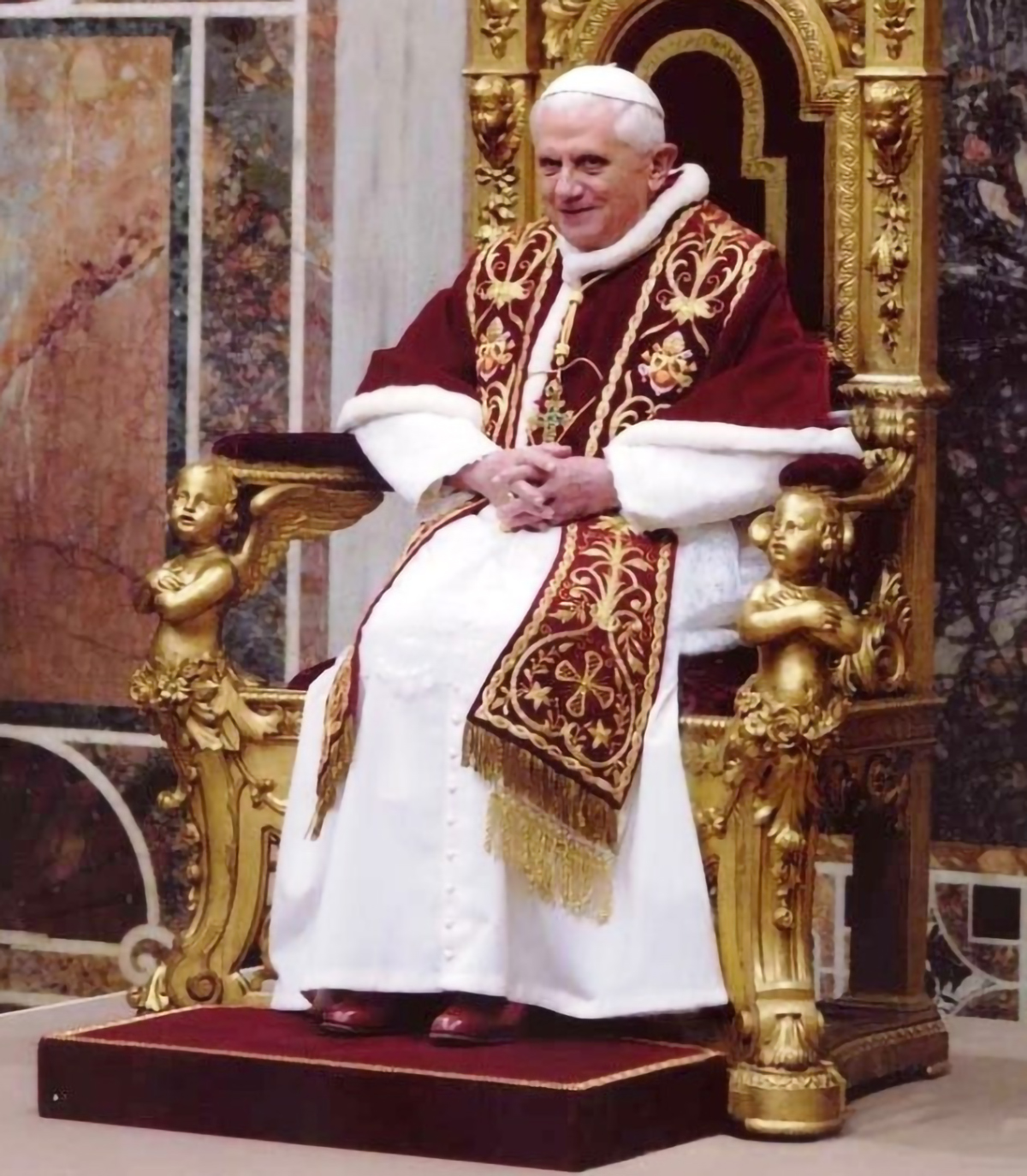
While most Catholics would agree that he was a great pope, others might point out that the Church sex abuse scandals were allowed to grow during his tenure.
Yeah. I think, like other prelates of his generation, he was really gobsmacked by the scandals and stricken. In a sense, he was braced for it because in the lead-up to the Jubilee, some people will remember, he made public apologies for the past sins of the Church on dozens of occasions, kind of what he called a “purification of memory.” I think when the sex abuse scandals came along, he was shocked. It took him probably longer than it should have to take it all in and to figure out how to deal with the complexity and the horror of the situation. The scandals really came into publicity in a big way in the year, I think, 2000.
By the time Benedict came along, in 2005, Benedict started to act more vigorously. I think it was partly the sex abuse scandals, together with the financial scandals, that caused Benedict to feel overwhelmed and just say he wasn’t up to dealing with it and to resign. Of course, Francis acted decisively to establish a commission on minors. By that time, I think we knew more about the Catholic Church’s role in the scandals, the role of priests in the scandals, and we were on the way to watching the Church do what it could to make amends.
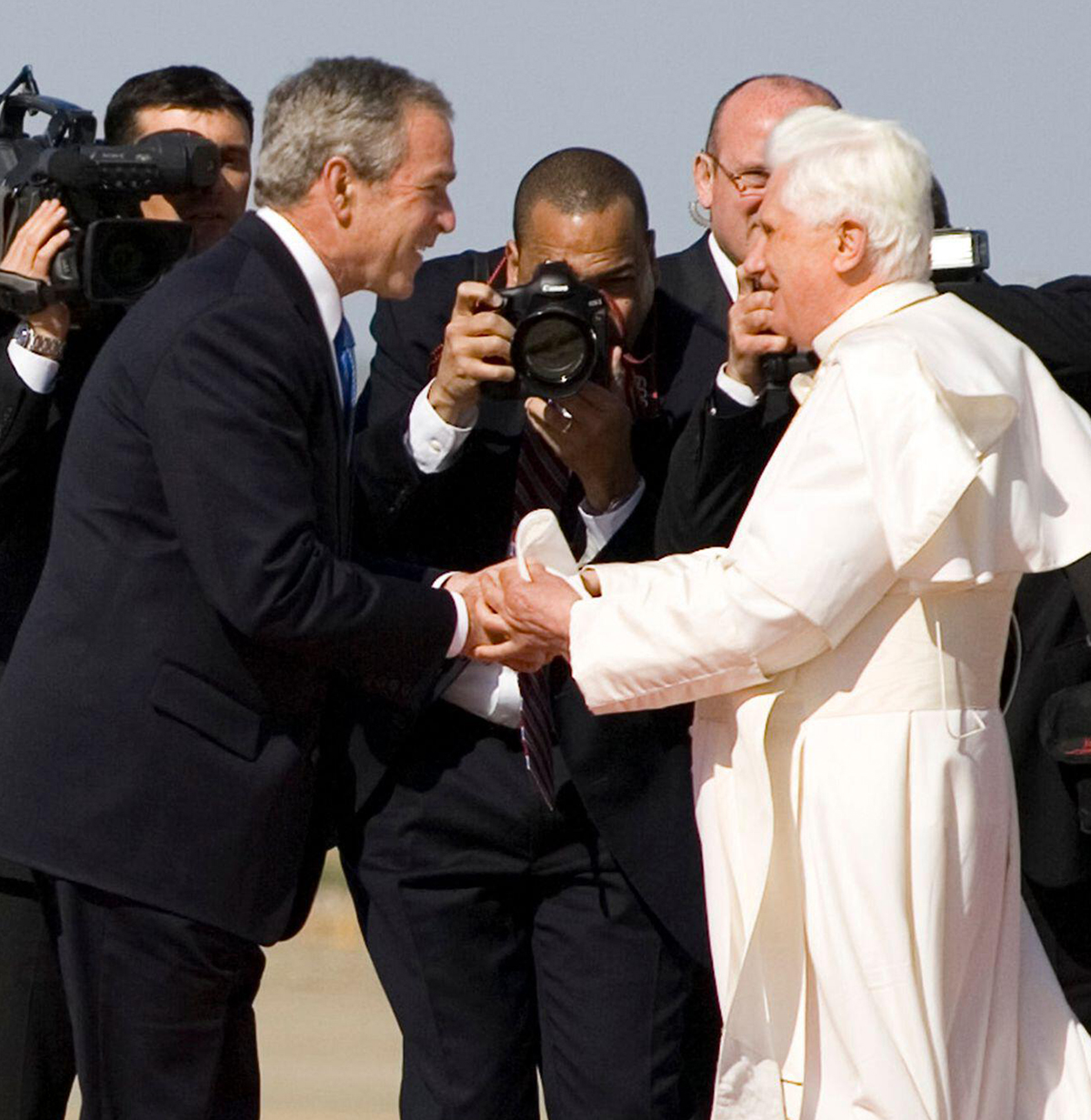
Would you agree that Benedict—who was known as kind of a stern enforcer of church doctrine—got harsher treatment from the media than Pope John Paul, who perhaps came across as more amiable and had better communication skills?
Oh, yes! Another factor that no one realizes is that Benedict came in just as John Paul II’s longtime brilliant press spokesman Joaquín Navarro-Valls resigned. So Benedict not only did not have John Paul II’s gifts for speaking to the public; he didn’t have a fantastic press spokesman. Although, I have to say that Benedict turned out to be quite the communicator when he settled into the public part of the job. When he gave those political speeches in the Bundestag, in Westminster in London, the Élysée Palace in France, and his speech at the United Nations in 2008, he made a big hit with the press. So it’s true that he was not the communicator that his predecessor was, but he managed to do pretty well when he got the hang of it.
You were nominated by President Bush to be the U.S. Ambassador to the Holy See during Benedict’s time. You refer to Bush, who is a Methodist, as a “president who spoke Catholic.” Can you tell me about that?
For some reason, to the surprise of most people, the very shy, scholarly Pope Benedict and the very outgoing George W. Bush hit it off extremely well. I think nobody has really figured out what it was that made them take to each other, but I think it’s unprecedented in the history of the U.S. relations with the Holy See that there were three meetings in the space of a year between Bush and Pope Benedict. I think partly it was that Pope Benedict appreciated the president’s heartfelt Christianity—and I think partly it was a good time in the relationship between the United States and the Holy See. A few years earlier, there were severe tensions because of our invasion of Iraq, but by the time [Benedict became pope], the Holy See’s main interest was that we should not withdraw from Iraq because of the danger to Christians and other minorities in that country.
So, with that behind them, the two of them were able to concentrate on things they had in common including condemning the use of religion as a pretext for violence, the improvement of interfaith relations and—here’s something nobody mentions—the fact that the U.S. is the world’s largest donor of humanitarian aid, and the Holy See supervises the world’s largest network of humanitarian aid institutions. When I was ambassador, I worked very hard to hold that up and highlight it. I think my biggest regret about my effort was that the press wanted to talk about everything else except that interest in humanitarian aid.
This bank attracted some very unsavory characters, which led to the famous scandals of the 1980s that were memorialized in Godfather III.
When you were nominated by President Bush in 2007, your nomination was held up or challenged by then-Senator Joe Biden, who accused you of being in violation of the Foreign Agents Registration Act. What was it like to be hit with that?
It was like a bolt out the blue, because the Foreign Agents Registration Act has a specific exemption for [religious entities]. I was clearly within the exemption, and the State Department lawyers sent memos to Biden’s office. I think what was really going on was that it was toward the end of the Bush administration and Biden just didn’t want to approve any more Bush appointees. I wish I could say that we persuaded Senator Biden through reference to the law but, in fact, the problem got solved in the old Boston way. I happened to chair an event in honor of Senator Kennedy’s sister Eunice,who was a friend of mine. I went up to Senator Kennedy and I said, “Can you do anything about this problem? Because it’s really important to have a U.S. ambassador in place when Benedict comes to the United States next spring.” Within days, the Senate unanimously confirmed my nomination. So that was the Boston way.
You describe President Bush, who again is not a Catholic, as having had a very good relationship with the Holy See. President Biden is a Catholic. How would you describe his relationship with the Vatican?
I don’t think Biden has a “special relationship” with the Vatican, but I think it’s a cordial relationship. I think, as in the case of the Bush administration, there are so many common interests. One is simply that [the Vatican] is what they call a great listening post, a great source of information, because the Holy See has priests and missionaries in the capillaries of societies where the United States and other countries don’t have access to that kind of grassroots information. The other reason is that [the Holy See’s] interests are very similar to the worldwide interests of the United States. That’s why the relationship goes all the back to the beginning of the Republic. It wasn’t formalized until President Reagan, but there’s a long history of the U.S. having envoys in the Holy See.
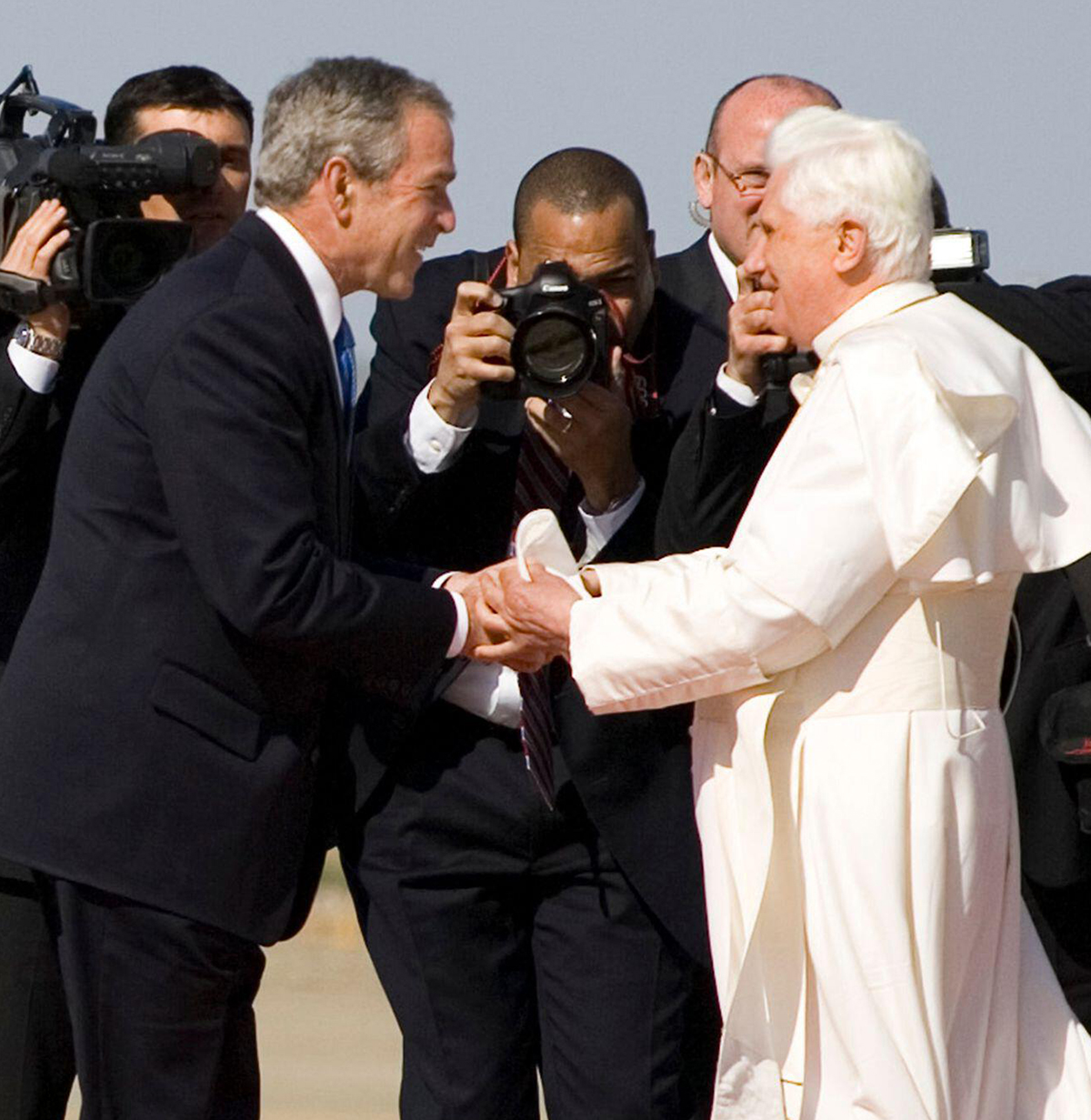
Moving ahead, when Pope Francis became pope he appointed you to a commission to assess the condition of the Vatican Bank, which was plagued by scandal. What was that experience like?
Well, that was probably the most intense experience I had in the Holy See. It was an experience that confirmed my impression that there was something seriously dysfunctional about the internal culture of the Holy See. It also made me understand something about reliance on lay experts. I came to realize that there’s nothing in the background or training of most priests and, therefore, of most bishops, cardinals, and popes that enables them to supervise, understand, and run a 21st-century financial institution—a central bank of a prominent state!
So, naturally, they turned to outside assistance, but the lay assistance turned out to be foxes in the chicken coop, because, just as the prelates weren’t really well qualified to run the bank themselves, they also weren’t that well qualified to choose and supervise laypeople. With these vulnerabilities, this bank was just too tempting a target. It attracted some very unsavory characters, which led to the famous scandals of the 1980s that were memorialized in The Godfather III but then right up to the time Pope Francis formed a commission to which I was appointed.
I think it’s unprecedented in the history of the U.S. relations with the Holy See that there were three meetings in the space of a year between Bush and Pope Benedict.
I was wondering, “Why do we have this commission and what am I supposed to do?” There were only four other people on it. I went over to Rome to get a sense of what was going on. As soon as I got there, the manager and the assistant manager of the bank had to resign under circumstances that involved financial misconduct.
So immediately we acted. We were under a lot of time pressure. We hired outside consultants. We embedded an investigator in the bank. We ran into tremendous resistance. The pope himself had given us a kind of general warrant to go into the bank and investigate everything and open any drawer. It’s one thing to have the warrant. It’s another thing to run up against that internal culture that blocked us at every stand.
We continued on our investigation for about a year. We proposed a program. That was the very moment when Cardinal Pell came in. Cardinal Pell discovered, to his dismay, much of what we had already discovered. What particularly shocked him was something that had to do with the archaic nature of the structure of the Vatican—that there was no central oversight or administration of Vatican finances. He immediately started to look into that, and he was blocked by the man who was just convicted of financial crimes in December in a Vatican court. He blocked Pell, and eventually Pell had to go back to Australia and, well, you know the result.
For the past couple of years, much of the information about what had been going on all that time came out of these Vatican trials, but the story isn’t over, because there will be appeals from those convictions. One of the people who was investigating the Vatican financial misconduct—an auditor from the outside—was fired, apparently with the consent of the pope. He now claims to have reams of information of what he discovered in the period when he was auditing. So the beat goes on, but I do think things are getting better, especially where the Vatican Bank is concerned.
What changes do you think should be made regarding the Vatican Bank?
My own view is a complete change from what I thought when I first became involved with the Vatican Bank. My reasoning then was a sovereign state needs a central bank. It’s tied in with the sovereignty of the Holy See, and we just have to make it work. I now feel, after four years on the board of directors plus that year of investigating the bank, that I was mistaken. I think the real question is whether the Holy See needs a bank at all. Many of the services that the Vatican Bank can perform can be performed better by outsourcing to other unquestionably reliable financial institutions. I think that that will be determined in the future. Whether they eventually decide to do that, that will be determined by whether the bank can hold on to a declining clientele. You know, heads of religious institutions who used to keep their money in the Vatican Bank, these religious sisters and priests, a lot of them have MBAs now. They’re perfectly capable of deciding where their money is best kept. So I think in view of modern circumstances and the difficulties of establishing best practices within the internal culture of the Holy See, that it may be well to outsource most of what the bank now does.
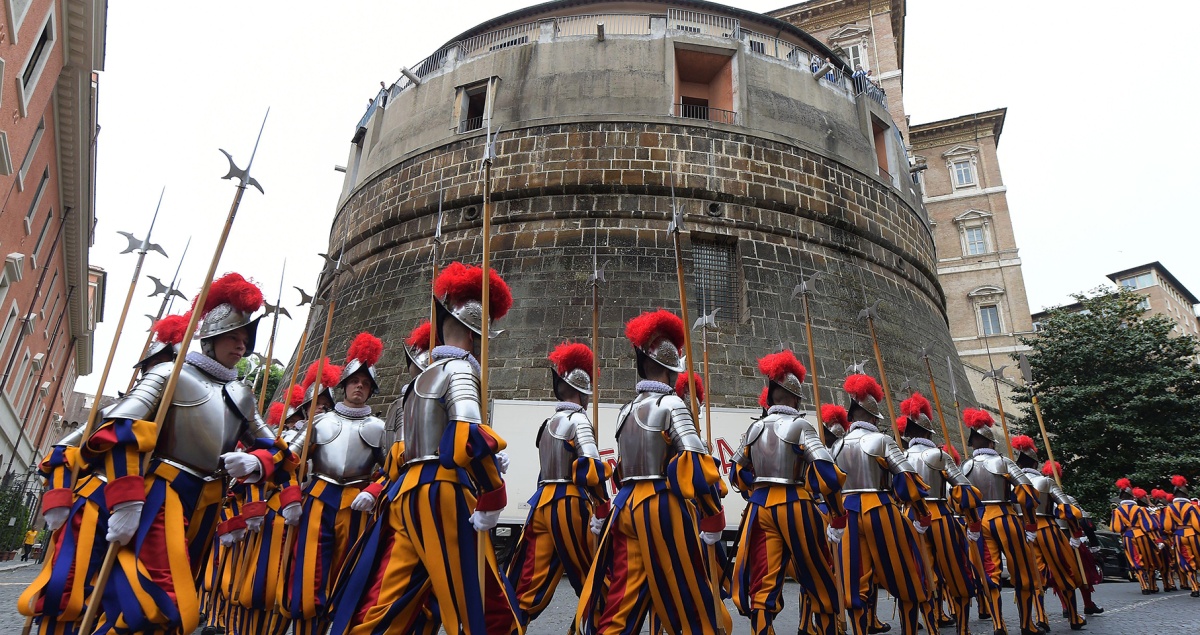
Regarding Pope Francis, you wrote that “Unlike Popes John Paul II and Benedict XVI, who taught, wrote and spoke with great clarity and consistency, Pope Francis speaks more elliptically; his messages are often more ambiguous or hard to interpret; his personality is more multifaceted; and he often seems to contradict himself.” That sounds like you’re a little critical of him.
Well, Pope Francis has a very different background and a very different set of interests than his predecessors. One was a philosopher; another was a theologian. It’s hard to tell what Francis’ legacy is going to be. It won’t be with writing—most of his writings are committee work—but he has tried to cope with what I think is the essential problem of the Holy See right now—coming to terms with being a rather antiquated institution in the modern world and fulfilling the mission of the Church in the modern world.
I think Francis has focused mainly on what he conceives to be the best way of carrying out the mission, which is, of course, bringing the news of the Gospel to the whole world. My feeling about his legacy is really that it probably will take some time to figure out what it has all meant. You know, it took many, many decades before we really understood the pontificate of Pius XII. I think it will take not that long, but it will take a while to understand whether Francis’ vision of what he aimed to do has worked. For example, the China policy, which has been much criticized, his idea was that it was the best policy for protecting Catholics in China. It will be a while before we really figure out the effect of that policy.
That policy is where he gives the Chinese government some say in who will lead the Church in China—is that correct?
Well, you know the details of the arrangement he made with China have never been made public, but we’re told that the arrangement included that there would be an understanding that bishops would be appointed with the approval of both entities. It seems that China has appointed bishops and not always sought the approval of the pope. It disturbs many people, including me, that the pope, while he speaks out forcefully on human rights in many situations, has not criticized the human rights problems in China, notably those with the Muslim Uyghur minority.
There are many household problems in the Holy See that wouldn’t be that hard to clear up.
From all your experience working in various capacities with the Vatican, what overall reforms do you think the Church needs to make as we move forward in the new millennium?
I mentioned my concern about the fact that neither John Paul II nor Benedict XVI had been a hands-on administrator. I think there are two main roots of the Holy See’s problems with governing right now. One is its internal culture. The other is a long period of relative lack of oversight during which many good and faithful prelates did what they were supposed to do but, as they say, when the cat’s away the mice will play.
Thinking ahead toward the next conclave, the Church is often described as Mater et Magistra, Mother and Teacher. I think the Church is in need of both. It’s in need, where doctrine is concerned, of clear and consistent teaching that can be understood by everybody, and a mother in the sense of somebody who will finally take charge of the household. There are many household problems in the Holy See that wouldn’t be that hard to clear up.
One that concerns me greatly as a laywoman is human relations [particularly with regard to] the 5,000 or so lay employees in the Holy See. The Vaticanista John Allen, who really has watched the Holy See up close for a long period of time, says, “You think the [only problems] in the Holy See are sex abuse or finance. You should pay attention to the way it treats its own employees.” The Church has a huge eloquent teaching on labor relations. It ought to model the high standards in Laborem Exercens that it sets for employers in its own household. Somebody needs to take a look at the way lay employees, especially women employees, are treated. Mater et Magistra: I think that’s what the next conclave ought to be looking for.

Do you think the Church has a problem with women? Sometimes it appears to observers that it really doesn’t know how to deal with questions of women and equality.
I think that what was said by John Paul II in that letter to the Beijing delegation and the model he set in his own appointments of women to important positions—besides myself, a number of women were appointed to councils, commissions, and academies—has just not been followed because of what I call the internal culture. If you’ve got a lack of oversight from the top and you’ve got a culture that is set in its ways and may be pretty far behind the times, you’re gonna have the situation that John Allen described, where lay employees in general are not treated very well. We have testimony that I quote in my book from two women who have written about the situations they were in recently in the Holy See. I have to say—and I think Catholics know this—that, in many parts of the Catholic world, Catholic institutions are not living up fully to what our social teaching expects of them.
You also write in your book about the principle of subsidiarity, which reminds us that large institutions in society should not overwhelm smaller or local institutions, and that, as much as possible, authority should rest with the people who are most local. Does the Church violate that principle a little bit with the authority being too far away from the people?
Well, lately I’ve been giving a lot of thought to St. John Henry Newman, who was made a saint by Pope Francis a couple of years ago. In the late 19th century, he kept saying to Church leaders that they do not understand the importance of the laity, whose mission, after all, is to evangelize the secular sphere where they live and work. Laity get into a habit of pay, pray, and obey. Clergy get into the same habit. Newman warned that the time is coming—the world is falling into secularism and you need not only to recognize that laypeople are going to be decisive in how you deal with the secular world but that they need to be prepared for it.
A century later, Vatican II gets around to trying to awaken the clergy to the importance of the laity and awaken laity, whom John Paul II called “the sleeping giant,” to their own role. That, I think, still hasn’t happened. Recently, somebody asked Cardinal Francis Arinze, who is one of the last living members of Vatican II, “What’s the biggest challenge for the Church?” He said: “Get the clergy and the laity to understand the importance of the lay role.” That’s really where we stand, I think.
This interview has been edited for brevity and clarity.



